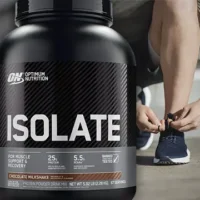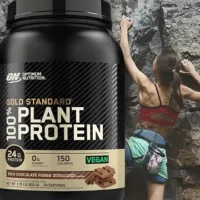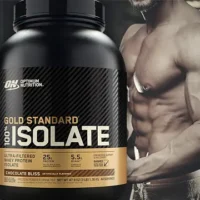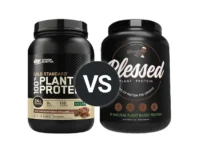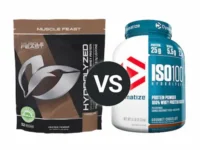Knowledge BaseYou're Questions Answered
BACK
Does Optimum Gold Standard Whey increase testosterone?
No, Optimum Gold Standard Whey does not directly increase testosterone levels. Whey protein, including Optimum Gold Standard Whey, is designed to support muscle recovery, repair, and growth by providing a high-quality source of protein. While it helps with overall fitness and muscle mass gains, it does not contain ingredients that specifically target or boost testosterone production.
What Whey Protein Does for Muscle Growth
- Supports Muscle Protein Synthesis
Whey protein provides all nine essential amino acids, including leucine, which plays a key role in muscle protein synthesis. This process is essential for repairing and building muscle tissue after exercise1. - Improves Recovery Post-Exercise
Whey protein is quickly absorbed by the body, making it an excellent option for post-workout recovery. It helps replenish the amino acids needed for muscle repair, reducing soreness and improving recovery times2.
Testosterone and Protein Supplements
- Testosterone and Muscle Growth
While testosterone is important for muscle growth, there is no evidence that whey protein itself increases testosterone levels. Instead, it provides the nutrients needed to support muscle growth through protein synthesis3. - Exercise-Related Testosterone Boost
Engaging in resistance training or intense workouts can naturally boost testosterone levels. While consuming whey protein helps with muscle recovery after these activities, the protein itself is not responsible for increasing testosterone levels4.
For more information, you can read our review of ON Gold Standard Whey.
Was this answer helpful? Let us know!
Like
References:
- Hulmi, J. J., Lockwood, C. M., & Stout, J. R. (2010). Effect of protein/essential amino acids and resistance training on skeletal muscle hypertrophy: A case for whey protein. Nutrition & Metabolism, 7(1), 51.
- Phillips, S. M. (2014). A brief review of critical processes in exercise-induced muscular hypertrophy. Sports Medicine, 44(1), 71-77.
- Kraemer, W. J., & Ratamess, N. A. (2005). Hormonal responses and adaptations to resistance exercise and training. Sports Medicine, 35(4), 339-361.
- Ahtiainen, J. P., Pakarinen, A., Alen, M., Kraemer, W. J., & Häkkinen, K. (2003). Muscle hypertrophy, hormonal adaptations and strength development during strength training in strength-trained and untrained men. European Journal of Applied Physiology, 89(6), 555-563.
Add to this Answer
Related Questions
Related Reviews
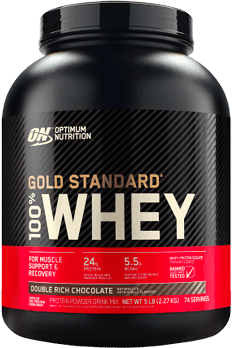
Disclosure
Your Answer
Do you have a suggestion to improve the answer? Please detail your suggestions and provide any references to information that may support your answer if available.
The content on this site has not been written, reviewed or endorsed by a medical professional. We assume no liability for the misuse of supplements and recommend you review the label of any product, as well as consulting with your health care professional.
We are a participant in the Amazon Services LLC Associates Program, an affiliate advertising program designed to provide a means for us to earn fees by linking to Amazon.com and affiliated sites.
We are a participant in the Amazon Services LLC Associates Program, an affiliate advertising program designed to provide a means for us to earn fees by linking to Amazon.com and affiliated sites.
© 2026 ProteinPowder.com
